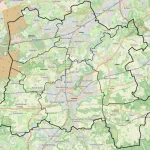UPDATE2 TalkTalk Call on Rival ISPs to BAN Capped Broadband Packages
Budget ISP TalkTalk has used a new YouGov survey to claim that consumers who pick broadband packages with a capped usage allowance risk excess data charges, which could be worth £140m across the industry. The provider wants rivals to BAN such products in favour of “unlimited” services.
The survey itself, which sees TalkTalk incorrectly claim to be the “only provider to offer 100% totally unlimited broadband as standard“, was conducted online with 2,023 British adults between 10th and 11th August 2015. In fact there are a good number of ISPs that offer only unlimited services, such as Hyperoptic, PlusNet and Aquiss to name a few.
Advertisement
Today the once rare notion of “unlimited” usage is somewhat common place among fixed line home broadband providers, although many ISPs also continue to offer slightly cheaper capped packages alongside those. For example, Sky Broadband’s entry-level Sky Fibre (FTTC) service comes with a 25GB allowance and is about -£10 per month cheaper than their unlimited equivalent (excluding special offers) and BT has a similar selection.
But TalkTalk’s survey warns that 86% of capped broadband customers surveyed said no one in their household kept track of data usage and 25% who go over the limits say they aren’t offered a plan that matches their usage requirements. Furthermore 21% of those on capped packages claimed to feel worried by the prospect of going over the limit and said the “threat of charges spoilt the enjoyment of being online“.
The ISP then points to Ofcom’s data, which at the end of last year found that the average UK household used 58GB (GigaByte’s) of data each month. TalkTalk notes how this is “much more than the 10-40GB monthly limited offered on ‘attractive’ headline broadband packages by major providers“, which is normal when talking about an “average“.
Tristia Harrison, TalkTalk’s Consumer MD, said:
“Our research shows that for almost half the population, internet connectivity is on a par with other essential utilities like water and electricity. As our dependence increases and more and more of our appliances and gadgets connect us to the things we love, the practice of capping broadband data usage is clearly outdated and unfair.
At TalkTalk, we are proud to be the only provider to offer 100% totally unlimited broadband as standard, with no download limits and we’d like to see other providers follow our lead by bringing an end to these unfair caps.”
Sadly the ISP doesn’t clarify precisely how many of the survey sample actually fell into the “capped” group, although their workings for reaching the £140m figure estimate that 4,393,726 UK Internet using adults have incurred an extra charge for exceeding a monthly allowance.
Advertisement
The aforementioned population figure is then multiplied by the average charge per customer per year (£31.87), although this figure isn’t explained. Earlier in the report TalkTalk also claims that, when incurring charges, capped broadband customers pay on average £11.30 a month (this also needs better explanation).
Certainly TalkTalk are right to reflect the risk of excess data charges on capped packages and the fact that some related consumers aren’t keeping track of their usage, which could end up hitting them in the pocket further down the road. But does this mean that all capped packages should be banned? It might not be that simple.
Consumers usually pick a capped package because it’s cheaper and they won’t be anticipating a significant level of Internet usage, which meets the needs of light users and is thus a useful choice to have.
Capped packages are also easier for the ISP to manage and may thus result in less variable performance for the end-user. By comparison unlimited packages are more expensive to cater for and performance can be more variable, particularly during peak periods, although experiences do vary.
Advertisement
On top of all that the £140m claim is somewhat pie in the sky without a wider base of comparison. In our experience ISPs can use all sorts of different methods for approaching excess data usage, such as those that will merely slow your connection and others who warn you before recommending a package upgrade if the excess usage continues for several months.
Excess data charges themselves are also highly variable, with some providers pricing each extra GigaByte used at a few pence and others charging several pounds. So perhaps ISPs just need to become better at communicating data usage to customers and offering upgrades to those who need it, which might be preferable to reducing the number of choices down to an unlimited-only mould.
UPDATE 10:59am
Added a comment from Entanet below.
Paul Heritage-Redpath, Entanet’s Product Manager, told ISPreview.co.uk:
“Capped packages still have an important place within the market and we have many customers that still prefer to opt for a capped package over an unlimited option. Surely, we should be providing consumers with a range of suitable options rather than only providing unlimited – after all, not everyone needs or wants unlimited.
That said, it’s also important that providers assist their customers to effectively manage and monitor their usage to ensure they minimise the risk of high overusage charges. For example our customers can view real time stats on usage via our customer portals and they receive usage warning emails as they approach and reach their limits.
They also have a choice of oveusage options to further aid spending control – choosing from pre-pay top-ups which roll over month to month or they can choose to pay on a per 1GB basis and set an upper limit. We think the key to this is choice and responsible communication and useful management tools from the providers.”
UPDATE 1:26pm
The boss of Andrews & Arnold (AAISP) has also chimed in with some additional perspective.
Adrian Kennard, MD of AAISP, said:
“It is interesting that TT say “internet connectivity is on a par with other essential utilities like water and electricity” as they are normally metered services and not “unlimited”. It is really disappointing that TT Retail are trying to shame ISPs like us when charging us for TT wholesale backhaul at the rate they do.
In a competitive market, the ISP offering cheap unlimited usage will attract the 2% of customers wanting to use the service flat out. Until backhaul costs come down, a truly unlimited usage package at a low price cannot be viable.
Talk Talk are in a position to reduce that backhaul cost for ISPs like us, and allow us to offer cheaper services without the same usage limits or costs – will they put their money where their mouth is?“
Mark is a professional technology writer, IT consultant and computer engineer from Dorset (England), he also founded ISPreview in 1999 and enjoys analysing the latest telecoms and broadband developments. Find me on X (Twitter), Mastodon, Facebook, BlueSky, Threads.net and Linkedin.
« Virgin Media Business Given Preferred Supplier Status by UK Government

















































Comments are closed